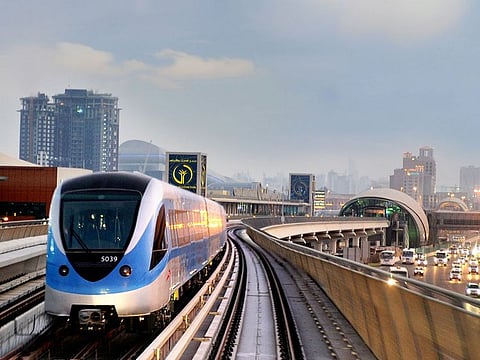RTA announces 20 new projects under five-year sustainability plan
25% transport trips to be self-driving, 100% recycling of waste to be supported by 2030

Dubai: Roads and Transport Authority (RTA) in Dubai has endorsed a five-year sustainability plan 2021-2025 aligned with its rejuvenated strategic goals and objectives aimed at supporting sustainability. Such projects are based on the environmental, societal and economic drivers of sustainability. The step is taken as part of RTA’s efforts to improve maturity levels of sustainability and become one of the most sustainable government entities in the field of roads and transport worldwide.
Mattar Al Tayer, Director-General, Chairman of the Board of Executive Directors of the Roads and Transport Authority, said, “RTA’s integrated sustainability plan is an important step towards assuming a leading global role in the smooth and sustainable mobility. The plan is aligned with several UAE strategies such as the UAE Green Development Strategy 2030 and the UAE Centennial 2071. It is also compatible with Dubai’s local policies highlighted by Dubai Plan 2030 and Dubai Urban Plan 2040 as well as global policies like the Sustainable Development Goals of the United Nations 2030 Agenda.”
Impact measurement
“The sustainability plan considers the assessment of all RTA’s projects and initiatives. It measures the environmental, societal and economic impact of RTA’s sustainability projects, and the extent to which such projects are linked with the important topics disclosed in RTA’s annual sustainability report. The plan encompasses 20 projects: nine for the environmental leadership, six for community leadership and five for economic prosperity in the context of RTA’s sustainability framework,” explained Al Tayer.
“The plan is set to have a significant environmental impact on reducing carbon dioxide emissions, enhancing the resilience of public transport infrastructure and its impact on climate change, and achieving RTA’s strategic objective of enhancing safety and environmental sustainability,” he added.
The plan includes several innovative public transportation projects and supports the Dubai Smart Mobility Strategy that aims to convert 25 per cent of total transportation trips in Dubai into self-driving trips on various transportation means by 2030. It also supports the integration of mass transit means in Dubai.
Circular economy
In line with RTA’s strategic objective of asset sustainability, the economic dimension of the plan provides for the optimal utilisation of all RTA’s assets while maintaining the quality of service offered to residents of the emirate. The economic projects aim to achieve a circular economy and support RTA’s plan for recycling 100 per cent of the waste of RTA’s operations and projects by 2030.
RTA has made significant achievements as far as sustainability is concerned. In 2018, RTA became the first public transport entity worldwide to publish a sustainability report compatible with the standards of the Global Reporting Initiative (GRI), and the International Standard on Assurance Engagements (ISAE) 3000. In 2020, RTA signed the United Nations Global Framework for Sustainable Development after aligning its sustainability report with the United Nations goals of tackling global challenges such as poverty, inequality, climate, environmental degradation, peace, justice, human rights and anti-corruption. Such achievements underscore RTA’s commitment to the 10 principles of the charter related to these areas.


